Banning Junk Fees
Some of these things are not like the other.
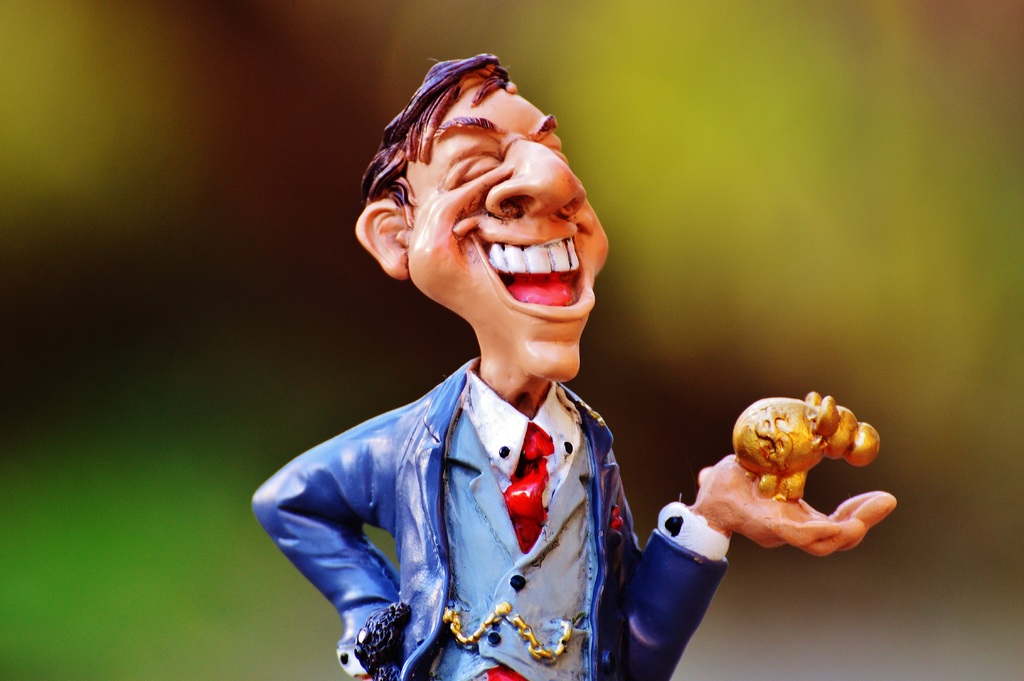
At SEMAFOR, Jordan Weissmann explores “Why the White House is going to war on ‘junk fees.’“
With year three of his presidency under way and a reelection fight looming, Joe Biden has been leaning hard into a promise to combat “junk fees” — the inescapable and deeply annoying extra charges Americans now pay to buy concert tickets, check luggage on flights, or book a hotel, among other purchases.
The issue took center stage during last week’s State of the Union when the president urged Congress to pass a “junk fee prevention act,” punctuating his call to action with an unexpectedly impassioned riff on hotel resort charges. “Those fees can cost you up to $90 a night at hotels that aren’t even resorts!” he exclaimed.
It might be tempting to downplay the White House’s new big theme as little more than cranky, small-bore populism — like something Andy Rooney might have come up with if he’d ever somehow become president, or an Al Franken joke come to life. (In 1999, the future senator published a goofy novel about winning the White House with a single-issue campaign promising to ban ATM fees).
But if you talk to Biden administration officials, its origins sound more high-minded. They make the case that junk fees are deeply serious business, a kitchen table issue that also happens to fit snugly with their wider ambition to bring American antitrust enforcement back from the grave and make markets more competitive.
“It just seemed like a really good combination: Easy for people to understand, politically salient, and supportive of our competition agenda,” said Bharat Ramamurti, the deputy director of the National Economic Council, who has helped lead the administration’s junk fee initiative. (NEC Director Brian Deese has also spearheaded the effort).
The White House estimates that Americans pay about $64 billion annually in fees, which include penalties for late credit card payments and bank overdrafts, as well as sneaky cable, airline, and hotel charges. Economists argue that these sorts of fees end up warping markets by allowing companies to hide the true cost of their services from shoppers.
They’ve paid special attention to the ways consumers end up fooled by “drip pricing,” the maddening practice perfected by airlines, hotels, and ticket vendors where companies advertise one price tag to customers, then jack it up by tacking on a bunch of unavoidable fees (see that massive AirBnb “cleaning fee” you may have paid recently).
But other opaque fees can be problematic as well. Early service cancellation charges may lock customers into bad deals that hinder competition. Ticky-tack overdraft fees let banks quietly harvest billions in revenue from poorer customers.
So, offhand, I think banning hidden fees is both good policy and good politics. Indeed, it’s odd that Republicans haven’t glommed onto this issue before now, given their shift toward populist rhetoric.
That said, I think there’s an obvious difference from add-on charges that are simply hidden prices (the resort fees that Biden singled out in the SOTU), those for actual services (cleaning charges), and for actual breaches of contract (late payments, overdrafts, and the like). There are good arguments against all of them but we should nonetheless distinguish between them.
Additionally, it’s worth noting that the biggest purveyor—and arguably the originator—of the first category are state and local governments. One of the reasons there are so many hidden charges for hotels and other travel-related amenities is that they’re a really easy way to extract revenues from people who don’t have the ability to vote against the legislators who put them into place.
Neale Mahoney, a Stanford economist who joined the administration as a special policy advisor in June, argues that these practices have created a vicious cycle, where businesses must use tactics like drip pricing or risk losing out to competitors who do. “This practice is becoming more and more pervasive,” Mahoney told Semafor. “We need to root it out across industries.”
Some countries have already begun the uprooting. Canada, for instance, recently banned drip pricing as a form of unfair competition and started bringing enforcement actions, including against the ticket resale platform StubHub.
Circling back to my point about targeted taxes as part of the same problem, most countries that use value-added taxes and the like require that they be calculated into the display price. That’s considerably more transparent than the custom in the US, where they’re added on at the register or at checkout.
The Biden administration, meanwhile, has started trying to curb some fees without Congress. This month the Consumer Financial Protection Bureau proposed a rule to limit credit card late fees it estimates would save customers $9 billion, while the Department of Transportation is looking to make airlines disclose more of their fees upfront. The Federal Trade Commission is also exploring a broad, Canada-esque ban on various fees as a form of “unfair competition.” But it’s also unclear if such a move would hold up in court.
I’m skeptical that doing these via executive fiat passes Constitutional muster but don’t have enough familiarity with the statues in question to have a strong opinion. Regardless, while I think lenders should have a right to enforce contractual penalties for failing to pay on time, I do think government has a role in ensuring that the penalties are not disproportionately onerous (say, a $25 late charge for being a day late on a $10 payment) or a function of chicanery on the part of the lender (say, a revolving due date that makes it difficult for the borrower to understand the deadline).
One reason Biden officials are interested in pursuing the Junk Fee Prevention Act is that its rules would be less likely to face a lawsuit. But they also think there could be bipartisan appetite in Congress for the proposal, which would ban “excessive” cable and wireless early cancellation fees, bar airlines from charging parents more to sit with their young children, curb fees on event tickets, and make hotels include resort fees in their upfront price.
In an ideal world, this would indeed be a bipartisan issue. But, again, the list here lumps in dissimilar things.
It’s perfectly reasonable for airlines to charge premium pricing for aisle, window, and exit row seats because many customers prefer them to others, making them a luxury good. Being a parent shouldn’t mean that you get a discount on aisle and window seats (or get to buy cheap seats and then shame those who either paid more or shopped early to get preferred seats into trading with you).
Nor is it unreasonable for cable companies or cellular providers to lock customers into a reasonable length contract in exchange for installing equipment, furnishing a phone, or the like. But government certainly has a role in setting parameters on what counts as reasonable—and, especially, in ensuring that there’s transparency in the contract and some sort of protection in case of exigent circumstances.
But, yes, “resort fees” and other unavoidable charges—to include taxes—should be part of the display price.
For Democrats, it should be a relatively easy sell. Chuck Schumer praised Biden for talking about junk fees last week on MSNBC’s “Morning Joe.” According to multiple sources, his office also discussed the issue with the White House after the State of the Union. That’s not a surprise: The Senate Majority leader spent much of his career waging battles on consumer issues like cereal prices and the volume of TV commercials, and is responsible for the “Schumer box” that clearly displays the terms of credit card agreements.
But Republicans have shown interest in fighting fees too. Rep. Ann Wagner, R-Mo. has co-sponsored a bill banning airlines from charging parents to sit with their kids, while Rep. Paul Gosar, R-Ariz. has introduced legislation requiring hotels to advertise resort fees upfront. Wonky economics arguments aside, nobody likes feeling ripped off while booking a vacation.
Indeed. Although, again, state and local governments have been first in line to contribute to that problem.
Companies have long argued that breaking the cost of airline tickets and other services into discrete charges gives customers more freedom to only pay for what they need. With Biden looking to curb the practice, the business lobby is accusing him of overreach.
“This Washington-knows-best approach will raise prices for families, lead to fewer choices for consumers, and make our economy less competitive,” Neil Bradley, chief policy officer at the Chamber of Commerce, said in a statement this month after Biden met with his team of antitrust advisers.
Again, some charges are reasonable and others aren’t. Hotels should be able to charge more for preferred rooms—say, those with an ocean view or a balcony—but not to hide the actual cost of staying at the hotel. If the room is advertised for $200 a night but there’s no way to stay there for less than $295, that’s fraudulent. If the $200 room doesn’t include a free breakfast or use of the gym or swimming pool—which cost extra—that’s probably fine. But even that should be clear at the time of booking.

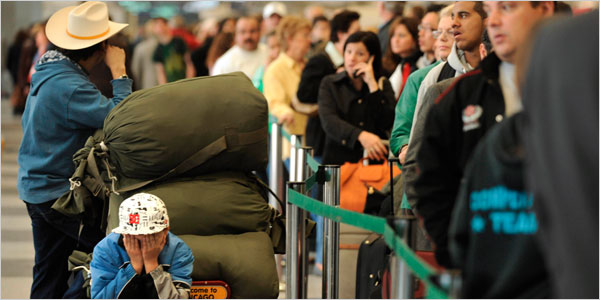
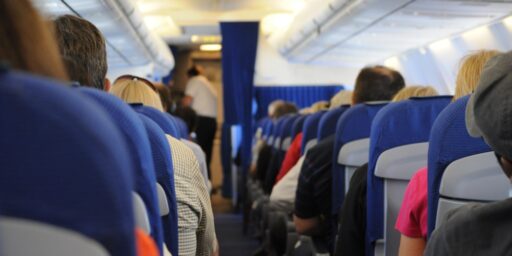
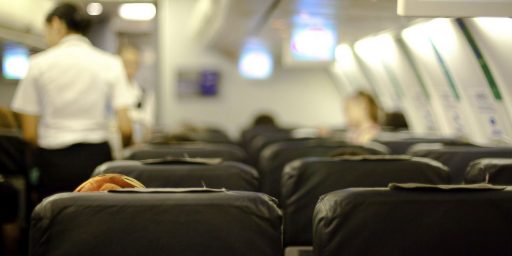
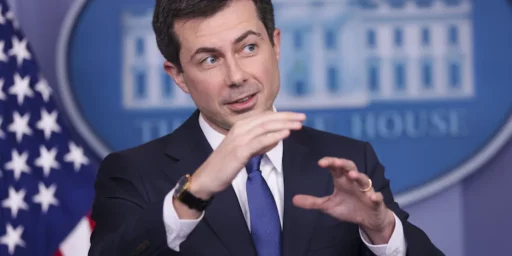

Because their populist rhetoric is only rhetoric.
It’s not odd at all when one considers their policy preferences are designed to enrich their campaign contributors. I mean
FTFH. The GOP’s faux populism fools no one who is paying attention.
There may be a justification for the exit row seats, as they have more leg room. Not for the rest.
In the most common flight, narrow body on a 3-3 configuration, 2/3 of all seats are aisle or window. A premium on the majority of seats is plain ridiculous.
Worse yet, many airlines now charge for seats closer to the front, even middle seats. I know a lot of people say they prefer to seat closer to the door for a more rapid disembarkation, but that’s a couple of minutes at most, not worth paying extra.
Not to mention some ultra-low cost carriers charge for all seat assignments, even the middle seats on the back row.
Oh, and not everyone is middle seat averse. People traveling together will often pick the middle seat and an aisle or window seat.
On top of all that, there are all sorts of unlikely fees, especially in ultra-low cost carriers. Some charge a fee for buying a ticket online. Others for printing a boarding pass at the airport.
And don’t get me started on fuel surcharges. These make sense when fuel prices are very high, but tend to stick around when fuel prices are low. Sometimes the fuel surcharges of all passengers in a given flight, will total more than the price paid for the flight’s fuel. How does that make sense?
Next passengers ought to be fitted with masks to measure the airflow in and out of their lungs. This way they cna be charged for the air they use up, and the carbon dioxide exhaled.
@OzarkHillbilly: James said quite correctly and I suspect with nuance aforethought “their shift toward populist rhetoric.” The emphasis on “rhetoric”. Their populist turn so far is all culture war and rhetoric. Yes, they’d never cross the C of C types by actually doing anything to reduce fees, but that would not prevent them from talking about it.
As with the contradiction between their goals on SS and Medicare and their public statements, GOPs have a way to square the circle. They lie.
All states who have the opportunity will tax people who are not residents rather than taxing residents. Alaska, Wyoming, Texas, and recently North Dakota tax non-residents by taxing hydrocarbons produced in their state, even though those will be consumed (and the tax revenue collected) in other states. Florida and Nevada tax the heck out of tourists. I firmly believe that except for the Commerce Clause, Louisiana would tax the massive Midwestern grain shipments that transit the state on the Mississippi River.
@Kathy: I actually prefer seats further aft. You’re correct that it only costs a few minutes on disembarking. But if they have a crash on takeoff, landing, or taxiing, like the last couple of publicized near misses, the survivors tend to be on top of or behind the wing box.
@Michael Cain: IIRC ratification of the Constitution in New York was a near thing because the state would lose the tariffs on the port of New York.
@p.********@fu**.net:
It depends on the dynamics of the accident. But overall, most survivors are found further aft.
Me, I like sitting behind the wing at a window seat because 1) the engine noise tends to drown out chatty passengers (though I bring earplugs if I intend to attempt to sleep), and 2) to see the flap, aileron, and speed brake action.
As to disembarking, most passengers will be clogging the aisle, retrieving their stuff from the overhead bins, even before the aircraft gets to the gate. By the time the door opens, the plane empties quickly.
I just want to know how much the goods and services cost. This should be upfront and visible at the start so that fair comparison can be made.
And let’s move on to hospital charges next..
About hotels, the price advertised should include all compulsory resort and “destination” fees, as well as all applicable taxes.
I tend to review everything while booking, and take my time doing so. For a vacation, I may start months out, and spend hours pricing the whole trip in different ways (travel agency, airline and hotel, airline package offers, etc.) But I’ve the leisure to do so.
It’s not uncommon to see a $65 rate advertised, which grow to $100 or more by the time you get to payment.
My one tip: check the hotel website first and look for all the fees and taxes. If you then book through an airline or travel agent, you should know how much extra over the advertised rates you’ll need to pay.
@Kathy:
I’m relatively tall, so an aisle seat is my decided preference—especially when traveling alone. If they’re all full, my next preference is a window seat, in that at least one side won’t be up against some sweaty, obese individual taking up half of my seat. If only center seats are available, I’ll look for another flight.
But, again, that’s transparent. They get away with it because some people have preferences.
Sure. And those seats will be cheaper.
Given that buying online is now the default, it obviously shouldn’t come at a surcharge. I don’t have an issue with a modest fee for printing a boarding pass at the airport. Who still does that?
That’s clearly fraudulent. Buying fuel is part of the cost of running an airline.
@Michael Cain:
Attending that hydrocarbons are a fungible good, I doubt that taxes over hydrocarbons produced in Alaska or Texas will have relevant effects in the consumer price; these taxes will fall over the producers, not the consumers.
@Michael Cain:
Extraction taxes are a good thing. The state has a finite supply of such resources that ought to be used for the good of the state’s entire citizenry, not just the profit of a few mining and drilling companies.
@James Joyner:
Ryanair charges 20 Euros for printing a boarding pass.
Transparency is sorely lacking in pricing. For one thing, novice or infrequent fliers might have no idea about seat assignment fees. For another, I’ve been shocked at seat fees for flights I’ve handled for coworkers.
Another thing that causes problems s when more expensive seats go empty. It used to be you could change seats freely in flight, even to the exit or bulkhead row, if any were empty. Not anymore. Some crews might allow it, but company policy often is to charge for an otherwise empty seat if passenger wants to switch, even if the flight is half empty.
In 1985 I flew a 2/3 empty Continental DC-10 from London to Houston. I had my windows seat back of the wing, but during the flight I also took over an empty middle row to lie down, so did many others.
These days, that might get you dragged off the plane in handcuffs upon landing.
@James Joyner:
There’s a weird view common in the business world that fraudulent behavior is mitigated by putting a warning about it in the fine print of some giant contract of adhesion, when in a sensible world it would be considered an aggravating factor demonstrating premeditation on the company’s part.
Regarding airline tickets: I’ve bought two international tickets in the past couple months. In both cases, the initial price is the price I paid (I think state sales tax was added on). I had a choice of “preferred seating” for an extra cost. I opted out–but still got aisle seats all the way. I like that checked baggage is an extra fee–because I don’t have any. I’m traveling for a week each time, and I’ll get along just fine with my standard-sized backpack (NOT the giant US Infantry rucksack that some people try to pass off as a “carry-on”). If you’re bringing along 6 steamer trunks on wheels, you should be paying for the extra weight.
Regarding taxes: The problem with including them in the price is that eliminates national pricing of products. So… No more Taco Bell “Dollar Menu”. Taco Bell couldn’t advertise items as being a dollar because the prices would be different all over the place. When I lived in Norfolk, there were two McDonalds across the street from each other. One was in Norfolk, the other wasn’t. Norfolk had a 10% city tax, the other municipality (Suffolk?) had a 5% city tax. The nationally advertised price of a Big Mac Meal wasn’t what you paid in either one–and they were both different.
Whatever happens, some will be unhappy, especially in regards to airline seating.
Upcharging for some seats makes sense, but for some carriers it’s gotten way out of hand.
Have food/snacks on the plane as part of your ticket price? People complain that they are paying for food they don’t eat.
Only have food available for purchase? Passengers complain about being nickle-and-dimed.
However, the idea that passengers should be charged for checking a bag led to people bringing over-stuffed “carry on” items, which in turn led some airlines to charging for carry-ons.
All of this nonsense is to game the search functions that find the cheapest ticket prices. At this point, it makes more sense to just increase ticket prices and get rid of all of the many stupid fees.
The hotels are doing the same thing, for the same reason.
@Kathy:
You fly on different airlines than I do. I have never been on a plane where the flight crew let anyone get out of their seats before the plane was parked at the gate.
My one move is to put my carry-on in the first available overhead space, even if its far forward of my seat. Then I can walk halfway out of the plane with my hands free and my bag is by then all alone and easy to pull down on the walk by.
@Jen:
Exactly.
Case in point, te coworker I talked about in the other thread, stranded by Aeromar today, sent me his ticket with another airline info so I could invoice it for expenses. The last minute one way fare was reasonable, but there’s an added $15 charge for, and I quote, “Airport office charge.”
I take it that’s for issuing a ticket at the airport.
Any fees for buying a ticket should be eliminated.
Meals and checked bags are an issue with me. When airlines began charging for them, they did not lower fares by a comparable amount. So it was “pay for what you want/need to use” but on top of existing fares.
Of course, that ship has sailed.
I’d favor fare tiers. Some airlines already do this. X fare is the seat and transportation, Y fare includes a carry on, Z fare a carry on and a checked bag, etc.
@Joe:
I last flew a US airline in 1991. Delta Mexico to Orlando via Atlanta. American carriers are more attuned to liability issues.
We do get the announcement to remain seated until the plane stops. thing is the cabin crew does remain seated at their stations, and can’t police the a**holes who get up halfway down the taxiway to remove their bags from the bin.
There really should be no rush. Plenty of time while the jet bridge operator mates the bridge to the plane, or for the ground crew to move the air stairs into position.
@Joe:
So you’re the one. What this does is force people who paid for that seat to put their bags further back, thus clogging the aisle as they go in the wrong direction—during both onboarding and offboarding—unnecessarily.
@James Joyner:
I no longer expect decent human behavior on airplanes. As the experience has gone from one of modest luxury to a complete stressful hassle at every point from purchasing the ticket to the moment you are finally out of that airport on the other end, people have become animals. “If they are screwing me, I’ll screw you” is the dominant attitude.
Anyone who thinks people will act in “enlightened self interest” (as the libertarians used to say) need only look to the airplane for a refutation of that belief. They are monsters, all of them, from the passengers to the CEOs.
The only thing left to do is give the flight attendants flame throwers and free reign. Make them the benevolent dictators of the sky.
Joe would think twice if either his luggage or his person could be ignited at the whim of an underpaid, overworked and frankly pissed-off flight attendant.
The only thing that stops a bad man with a carry on is a flight attendant with a flamethrower.
Should probably extend their dominion to all airport and airline property, to get the managers, CEO and board members in line.
@Gustopher:
There’s no way the FAA or EASA will ever certify a massive fire hazard for regular use on airplanes.
How about pepper spray?
@Joe: So you’re the guy who’s taken the space my CPAP machine would’ve gone into. Thanks ☹️
@Gustopher: Not expecting decent human behavior at all is easier and leads to more pleasant surprises.
@Gustopher:
Only a matter of time before the flight attendants include selected lyrics from “Welcome to the Jungle” in their safety briefings.